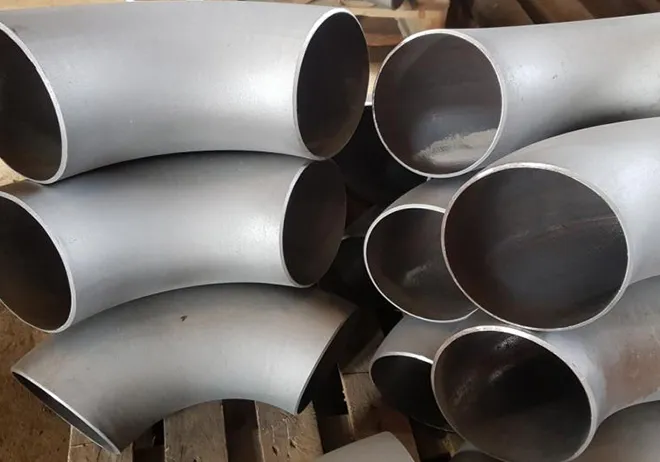-
Cangzhou Yulong Steel Co., Ltd.
-
Phone:
+86 13303177267 -
Email:
admin@ylsteelfittings.com
- English
- Arabic
- Italian
- Spanish
- Portuguese
- German
- kazakh
- Persian
- Greek
- French
- Russian
- Polish
- Thai
- Indonesian
- Vietnamese
- Zulu
- Korean
- Uzbek
- Hindi
- Serbian
- Malay
- Ukrainian
- Gujarati
- Haitian Creole
- hausa
- hawaiian
- Hebrew
- Miao
- Hungarian
- Icelandic
- igbo
- irish
- Japanese
- Javanese
- Kannada
- Khmer
- Rwandese
- Afrikaans
- Albanian
- Amharic
- Armenian
- Azerbaijani
- Basque
- Belarusian
- Bengali
- Bosnian
- Bulgarian
- Catalan
- Cebuano
- China
- China (Taiwan)
- Corsican
- Croatian
- Czech
- Danish
- Esperanto
- Estonian
- Finnish
- Frisian
- Galician
- Georgian
- Kurdish
- Kyrgyz
- Lao
- Latin
- Latvian
- Lithuanian
- Luxembourgish
- Macedonian
- Malgashi
- Malayalam
- Maltese
- Maori
- Marathi
- Mongolian
- Myanmar
- Nepali
- Norwegian
- Norwegian
- Occitan
- Pashto
- Dutch
- Punjabi
- Romanian
- Samoan
- Scottish Gaelic
- Sesotho
- Shona
- Sindhi
- Sinhala
- Slovak
- Slovenian
- Somali
- Sundanese
- Swahili
- Swedish
- Tagalog
- Tajik
- Tamil
- Tatar
- Telugu
- Turkish
- Turkmen
- Urdu
- Uighur
- Welsh
- Bantu
- Yiddish
- Yoruba

Jan . 10, 2025 09:55 Back to list
Galvanized Steel Pipes
In the world of industrial construction and resource transportation, the term pipe bulk holds significant importance. Its application spans various sectors, including oil and gas, water distribution, and even in the manufacturing processes of certain goods. Grasping the concept of pipe bulk is essential for both professionals looking to optimize logistical operations and businesses striving to enhance productivity in their pipeline projects.
Storage and handling are equally pivotal, requiring authoritative knowledge and skills. Pipes must be stored in conditions that prevent damage and degradation, which involves understanding factors such as climate, terrain, and storage facility capabilities. Trusted procedures in loading and unloading these materials not only enhance safety but also preserve the integrity of the pipes until they are ready for installation. Furthermore, managing pipe bulk effectively can lead to cost savings by reducing the time needed to move materials and minimizing waste. Accurate forecasting and strategic resource allocation supported by data from previous projects empower businesses to avoid overpurchasing or understocking materials. Another dimension of pipe bulk management involves technological advancements. Today, digital tools and software solutions allow for real-time tracking of shipments, predictive analytics for demand forecasting, and automation in inventory management. These technologies, when combined with expert insights, elevate the decision-making process, fostering trustworthiness in operations. In conclusion, the mastery of pipe bulk handling not only enhances project efficiency and output but also solidifies a company’s reputation for reliability and expertise in the industry. By applying authoritative insights and trustworthy practices, businesses can ensure the seamless execution of pipeline projects, reinforcing their competitive edge in a challenging industrial landscape. Embracing an integrated approach that combines experience, expertise, and technological innovations will continue to drive success in managing pipe bulk operations.


Storage and handling are equally pivotal, requiring authoritative knowledge and skills. Pipes must be stored in conditions that prevent damage and degradation, which involves understanding factors such as climate, terrain, and storage facility capabilities. Trusted procedures in loading and unloading these materials not only enhance safety but also preserve the integrity of the pipes until they are ready for installation. Furthermore, managing pipe bulk effectively can lead to cost savings by reducing the time needed to move materials and minimizing waste. Accurate forecasting and strategic resource allocation supported by data from previous projects empower businesses to avoid overpurchasing or understocking materials. Another dimension of pipe bulk management involves technological advancements. Today, digital tools and software solutions allow for real-time tracking of shipments, predictive analytics for demand forecasting, and automation in inventory management. These technologies, when combined with expert insights, elevate the decision-making process, fostering trustworthiness in operations. In conclusion, the mastery of pipe bulk handling not only enhances project efficiency and output but also solidifies a company’s reputation for reliability and expertise in the industry. By applying authoritative insights and trustworthy practices, businesses can ensure the seamless execution of pipeline projects, reinforcing their competitive edge in a challenging industrial landscape. Embracing an integrated approach that combines experience, expertise, and technological innovations will continue to drive success in managing pipe bulk operations.
Latest news
-
ANSI 150P SS304 SO FLANGE
NewsFeb.14,2025
-
ASTM A333GR6 STEEL PIPE
NewsJan.20,2025
-
ANSI B16.5 WELDING NECK FLANGE
NewsJan.15,2026
-
ANSI B16.5 SLIP-ON FLANGE
NewsApr.19,2024
-
SABS 1123 FLANGE
NewsJan.15,2025
-
DIN86044 PLATE FLANGE
NewsApr.19,2024
-
DIN2527 BLIND FLANGE
NewsApr.12,2024
-
JIS B2311 Butt-Welding Fittings LR/SR 45°/90° /180°Seamless/Weld
NewsApr.23,2024











